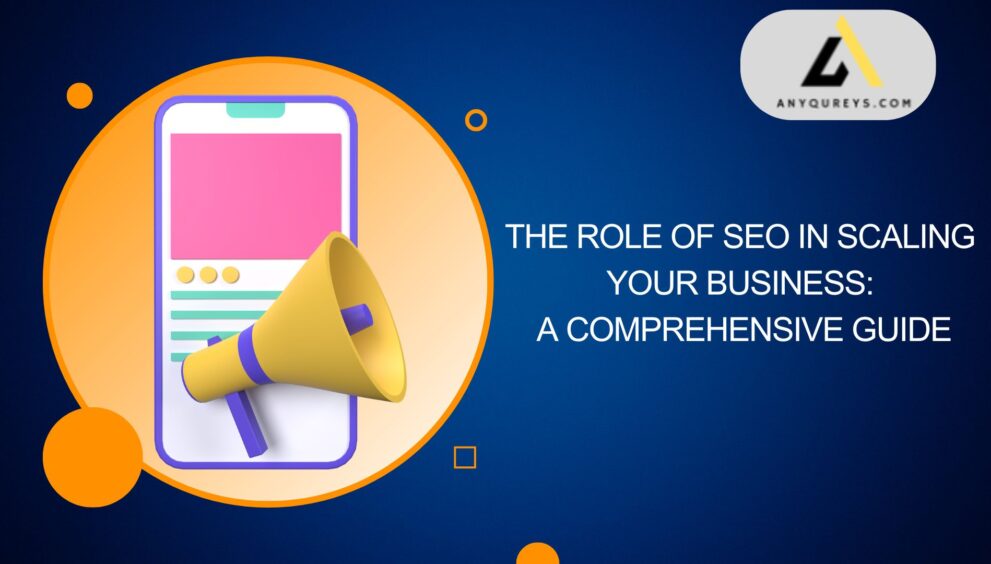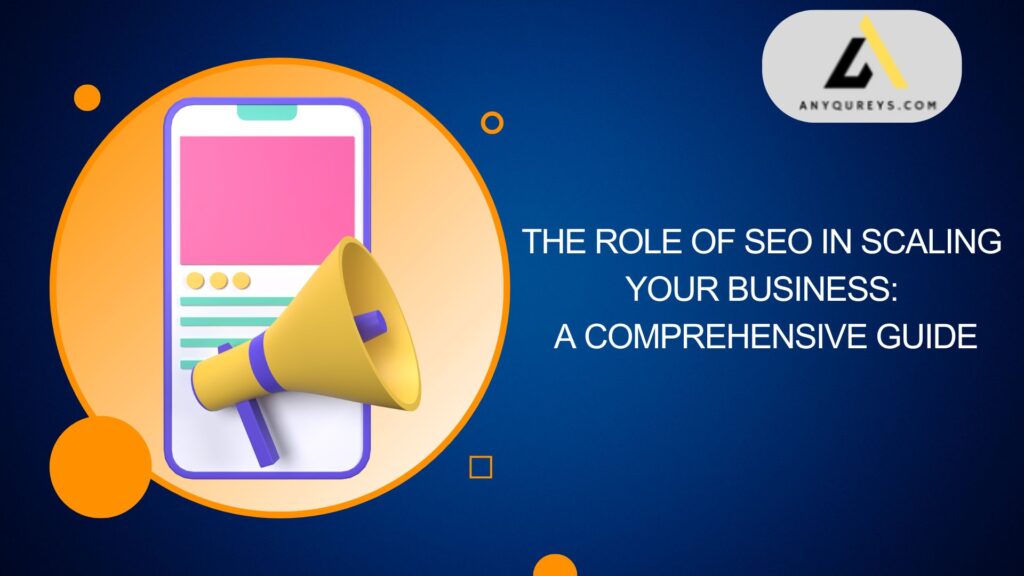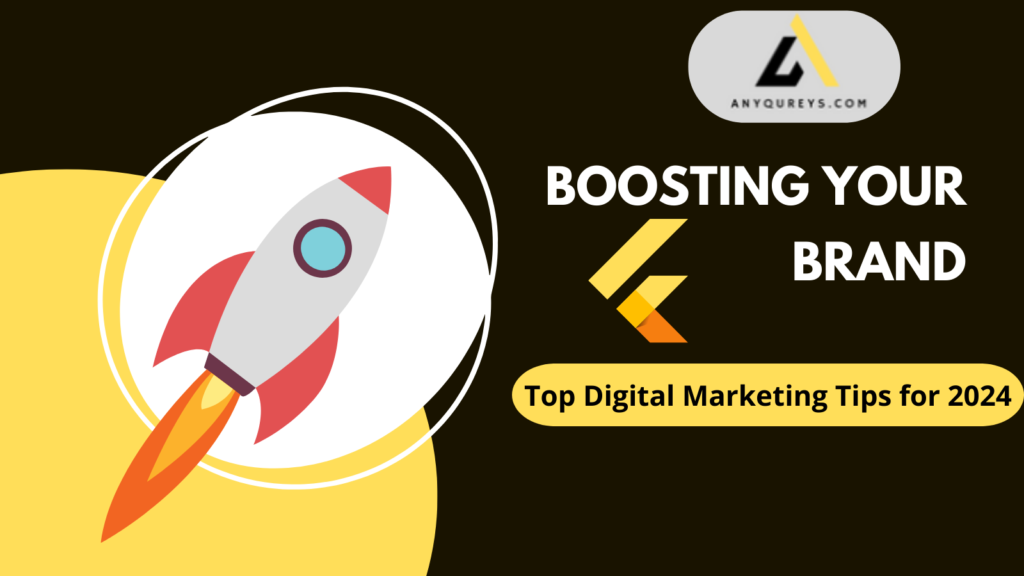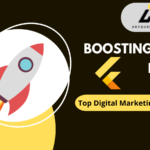The Role of SEO in Scaling Your Business: A Comprehensive Guide

Search Engine Optimization (SEO) is more than just a buzzword in the digital marketing world—it’s a critical component of business growth. When executed effectively, SEO can be a game-changer, helping businesses improve visibility, attract more customers, and scale sustainably. This comprehensive guide explores the vital role of SEO in scaling your business and how to implement it successfully.
1. Increased Organic Traffic and Visibility
SEO helps your business appear higher in search engine results pages (SERPs) when potential customers are searching for products or services you offer. By optimizing your website for relevant keywords, improving your content, and enhancing the overall user experience, SEO increases organic traffic—the lifeblood of many online businesses.
Higher rankings lead to more visibility, which translates to increased traffic without the need for continuous ad spend. As you attract more visitors, your brand grows, enabling you to scale your business with a strong foundation.
2. Building Brand Credibility and Trust
Ranking at the top of search engine results signals to users that your business is credible and trustworthy. Customers tend to trust organic search results more than paid advertisements. A well-optimized website with valuable, informative content, a clean user experience, and positive customer reviews enhances your brand’s credibility. This reputation fosters loyalty and can lead to long-term customer relationships, which is crucial for business growth.
3. Long-Term Cost Efficiency
While paid advertising can generate immediate traffic, the cost can add up over time. SEO, on the other hand, is a long-term investment that pays off sustainably. By ranking for relevant keywords and improving your organic presence, you can reduce your dependence on paid channels. SEO allows you to achieve a steady stream of traffic without the ongoing cost of ads, giving you more budget to invest in other areas of business growth.
4. Understanding and Meeting Customer Intent
Successful SEO strategies are built around understanding the intent behind customer searches. By targeting keywords that match what potential customers are searching for at various stages of the buyer’s journey, SEO helps you attract qualified leads. Whether they are in the research phase, comparison phase, or ready to make a purchase, your SEO efforts ensure you have content that meets their needs.
As you align your content with customer intent, you improve user engagement, boost conversions, and position your business as a valuable resource—key factors in scaling your operations.
5. Improved User Experience (UX)
SEO isn’t just about keywords and backlinks. Google rewards websites that provide a great user experience, which includes fast loading times, mobile-friendliness, intuitive navigation, and secure browsing. By focusing on SEO, you’re also improving the overall usability of your website.
An optimized website ensures visitors stay longer, engage more, and are more likely to convert into paying customers. As your UX improves, your SEO rankings will rise, creating a positive cycle that contributes to business growth.
6. Local SEO for Regional Expansion
Local SEO is especially important if you’re looking to expand your business regionally. By optimizing your website for local search terms, creating a Google My Business profile, and garnering local reviews, you can attract customers in specific geographic areas. This is particularly beneficial for businesses with physical locations or those offering region-specific services.
As your presence grows locally, you can build a loyal customer base, expand to new locations, and use your local success as a springboard for broader growth.
7. Targeting New Market Segments
SEO gives businesses the flexibility to target various market segments by optimizing for different keywords, locations, and customer needs. As your business grows, SEO allows you to tap into new markets without needing a complete overhaul of your website or marketing strategy. Simply expanding your keyword strategy and adjusting your content to cater to different audiences can open new revenue streams, contributing to scalable growth.
8. Content Marketing Synergy
SEO and content marketing go hand-in-hand. High-quality, keyword-optimized content that provides value to users will naturally rank higher in search engines. By consistently creating blogs, articles, videos, and other types of content that address your customers’ pain points, you can generate traffic, leads, and conversions over time.
Content-driven SEO strategies enable businesses to become thought leaders in their industry. As your authority grows, so does your audience, fueling scalable growth through organic channels.
9. Analytics and Continuous Improvement
One of the greatest advantages of SEO is the ability to measure and analyze performance. SEO tools like Google Analytics, Google Search Console, and various keyword tracking platforms offer valuable insights into your traffic, user behavior, and keyword rankings.
These insights help you continually refine your SEO strategy, identify new growth opportunities, and make data-driven decisions that contribute to business scaling. By staying on top of trends, competitor strategies, and performance metrics, you can ensure sustained growth.
10. Sustainable Competitive Advantage
Businesses that invest in SEO build long-term competitive advantages. While competitors may rely on short-term tactics like paid ads or promotions, SEO builds lasting authority and organic traffic. As your business continues to rank for important keywords and dominate SERPs, you create a barrier that competitors will find difficult to overcome.
This sustained advantage positions your business as a leader in your niche, giving you room to expand, innovate, and grow your brand.
Conclusion
SEO plays an indispensable role in scaling your business by increasing visibility, driving organic traffic, and improving user experience. As a long-term, cost-efficient strategy, SEO allows businesses to attract qualified leads, build trust, and stay competitive. By continuously optimizing your SEO efforts and aligning them with your growth goals, your business can achieve scalable success in the digital age.

 English
English 












